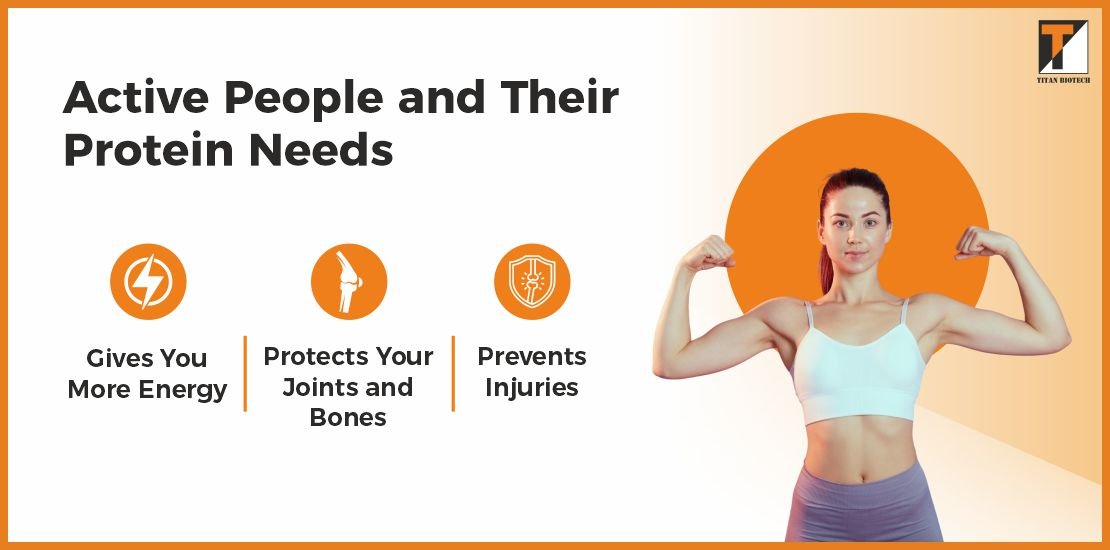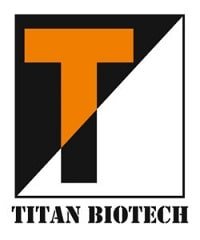Table of Content
- What is Protein and Why Do We Need It?
- Why Office Workers and Professionals Need Protein?
- Why Gym-Goers and Fitness Lovers Need More Protein?
- Active People and Their Protein Needs
- How Much Protein Do You Need?
- Best Sources of Protein
- Understanding Different Types of Protein
- Common Myths About Protein
- Why Fish-Sourced Protein Should Be Included in Drinks
- Protein Helps More Than Just Muscles
- Conclusion: Make Protein a Daily Priority
- Frequently Asked Questions (FAQs)
- References
In today’s fast-paced world, staying healthy often takes a back seat to deadlines, workouts, and daily responsibilities. Yet, no matter your routine—whether you’re an office worker glued to a desk, a gym enthusiast pushing limits, or simply someone who’s always on the move—your body has one constant need: protein.
It’s the foundation of muscle, energy, tissue repair, and overall vitality. This blog breaks down, in simple and practical terms, why protein is a non-negotiable part of every lifestyle, how much you really need, the best types to choose from, and how to easily include it in your daily routine—even if you’re too busy to cook.
What is Protein and Why Do We Need It?
Protein is a nutrient your body uses to build and repair tissues. It’s made up of small units called amino acids. These amino acids are like building blocks for your body. Protein helps with:
- Growing muscles and keeping them strong
- Healing your body when you get hurt
- Making important chemicals like enzymes and hormones
- Keeping your hair, skin, and nails healthy
- Supporting your immune system to fight illness
Your body can’t store protein like it stores fat or carbs, so you need to eat enough of it every day.
Why Office Workers and Professionals Need Protein?

Even if you don’t do heavy physical work, your body still needs protein. Here’s why:
-
-
- Keeps You Full Longer– Protein-rich foods help you feel full, so you’re less likely to snack on junk food.
-
- Improves Focus and Energy– It keeps your blood sugar levels steady, helping you stay alert and focused during long meetings or work hours.
- Helps with Weight Control– Protein boosts your metabolism and helps you manage weight without always feeling hungry.
- Reduces Stress– Protein helps your body produce calming chemicals that fight stress and tiredness.
-
Simple Tip: Add protein to every meal.
Why Gym-Goers and Fitness Lovers Need More Protein?

If you love working out or going to the gym, your body needs more protein than the average person. That’s because:
- Muscles Need Repair– Every workout creates small tears in your muscles. Protein repairs these tears, helping your muscles grow bigger and stronger.
- Faster Recovery– It helps reduce soreness and rebuilds your strength after a workout.
- Burns More Fat– Eating more protein helps burn calories, especially when trying to lose fat.
- Boosts Strength and Performance– It improves muscle power and helps you train harder and longer.
When to Eat It: The best time to eat protein is within 30 to 60 minutes after exercise. This helps your muscles recover faster.
Active People and Their Protein Needs

If you’re someone who stays on your feet a lot, travels, does physical work, or just loves being busy, protein is still very important.
- Gives You More Energy– Protein keeps you going through a busy day.
- Protects Your Joints and Bones– It strengthens the parts of your body that move the most.
- Prevents Injuries– A protein-rich diet helps muscles and tissues heal faster if you get hurt.
No matter how old you are, staying active means your body needs the power of protein.
How Much Protein Do You Need?
How much protein you need depends on your age, activity level, and goals. Here’s a general idea:
- People who don’t exercise much– 0.8 grams of protein per kilogram of body weight per day
- Moderately active people– 1.0 to 1.2 grams per kg
- Active individuals or gym-goers– 1.4 to 2.0 grams per kg
For example, if you weigh 70 kg and are active, you may need between 98g to 140g of protein each day.
Best Sources of Protein
Animal-Based Proteins:
- Chicken, eggs, fish, milk, yogurt, lean beef
- These are complete proteins, which means they have all essential amino acids
Plant-Based Proteins:
- Beans, lentils, peas, tofu, chickpeas, quinoa, nuts
- Healthy and high in fibre but may lack some essential amino acids
Marine-Based Proteins:
- Fish, shrimp, marine collagen, seaweed protein
- Very easy to digest, full of important nutrients like omega-3
Understanding Different Types of Protein
Let’s look at the pros and cons of some popular protein types.
Vegan Proteins (from plants)
- Good for the planet and ethical choice
- But some plant proteins do not contain all the amino acids your body needs
- You might need to eat more quantity to get enough protein
- Some people feel bloated or uncomfortable after eating beans or soy
Milk-Based Proteins (like whey or casein)
- Great for building muscle quickly
- But not good for people who are lactose intolerant
- Can cause allergies or skin problems in some people
- Some powders have artificial flavours, sweeteners, or hormones
Marine Proteins (from fish and sea plants)
- Complete and easy to digest
- Contain omega-3, which reduces inflammation and supports heart and joint health
- Help with skin glow, joint strength, and bone density
- Suitable for people who can’t have dairy
- Usually sourced sustainably and are very clean
Tip: Try using marine collagen powder or fish protein isolate. They mix well in smoothies or soups and are easy on the stomach.
Common Myths About Protein
Let’s clear up some common wrong ideas about protein:
- Myth: Eating too much protein harms your kidneys.
- Truth: If you’re healthy, eating more protein is safe. Only people with kidney disease need to be careful.
- Myth: Protein will make you bulky.
- Truth: Eating protein won’t make you big unless you do intense weight training. It helps you stay lean.
- Myth: You can only absorb 30g of protein at one time.
- Truth: Your body digests and uses protein over time, not all at once.
Why Fish-Sourced Protein Should Be Included in Drinks
Consuming enough protein through whole foods like fish or chicken can be challenging, especially for those with busy lifestyles, reduced appetites, or dietary restrictions. Including fish-sourced protein in drinks offers a convenient and effective solution to bridge the protein gap. These proteins are highly bioavailable, easy to digest, and rich in essential amino acids. Drinkable formats help individuals meet their daily protein requirements without the need for large meals, making them ideal for athletes, the elderly, or anyone needing a quick, nutritious boost throughout the day.
Key Benefits:
- Convenient way to meet daily protein needs without heavy meals
- Highly digestible and fast-absorbing for better muscle recovery
- Ideal for individuals with reduced appetite or difficulty chewing meat
- Rich in essential amino acids and collagen peptides
- Supports muscle maintenance, joint health, and overall wellness
- Light, easy-to-consume format perfect for on-the-go nutrition
Protein Helps More Than Just Muscles
Protein isn’t only for bodybuilders. It helps every part of your body:
- Keeps your immune system strong
- Gives you healthier hair and glowing skin
- Keeps your nails from breaking
- Helps bones stay strong as you get older
- Supports hormones that manage stress and energy
Conclusion: Make Protein a Daily Priority
No matter your lifestyle—sedentary, active, or somewhere in between—protein plays a critical role in keeping your body functioning at its best. From helping your muscles recover to supporting your skin, bones, and immune system, the benefits go far beyond just fitness.
Marine proteins are especially helpful if you want something clean, easy to digest, and full of extra benefits like better skin and joint health. Vegan and dairy proteins also have their place, but each comes with their own pros and cons.
Protein-rich drinks offer added convenience, especially for busy professionals or those with lower appetites. So, make protein a daily habit. A small change in your routine today can lead to better energy, sharper focus, stronger health, and improved quality of life tomorrow.
Start small, stay consistent, and you’ll notice the difference in your energy, focus, strength, and overall well-being. Your body will thank you!
Frequently Asked Questions (FAQs)
Why is protein important if I don’t go to the gym?
Even if you’re not working out, your body still needs protein to maintain energy levels, repair tissues, support brain function, and keep your immune system strong. It’s essential for everyone—not just athletes.
How much protein do I really need each day?
Protein needs vary based on your activity level:
- Sedentary: 0.8 g/kg of body weight
- Moderately active: 1.0–1.2 g/kg
- Active/gym-goers: 1.4–2.0 g/kg
For example, a 70 kg active person needs around 98–140g per day.
What’s the best time to consume protein?
For best results, include protein in every meal. If you’re exercising, consume protein within 30–60 minutes after your workout to support muscle recovery.
Are plant-based proteins enough for my needs?
Yes, but you may need to combine different plant sources (like lentils and quinoa) to get all essential amino acids. They’re a great option, especially when complemented with variety and adequate quantity.
Why should I consider fish-sourced or marine protein?
Marine proteins are clean, easy to digest, and rich in omega-3s and collagen. They support joint, skin, and muscle health and are ideal for people who can’t tolerate dairy or want a lighter option.
Can protein really help with weight control and energy?
Absolutely. Protein keeps you full for longer, stabilizes blood sugar levels, supports metabolism, and helps prevent energy crashes—making it great for weight management and sustained energy throughout the day.
References
- https://jissn.biomedcentral.com/articles/10.1186/s12970-017-0177-8
- https://pubmed.ncbi.nlm.nih.gov/17213878/
- https://www.sciencedirect.com/science/article/pii/S0002916523274274?via%3Dihub
- https://irispublishers.com/gjnfs/pdf/GJNFS.MS.ID.000578.pdf

